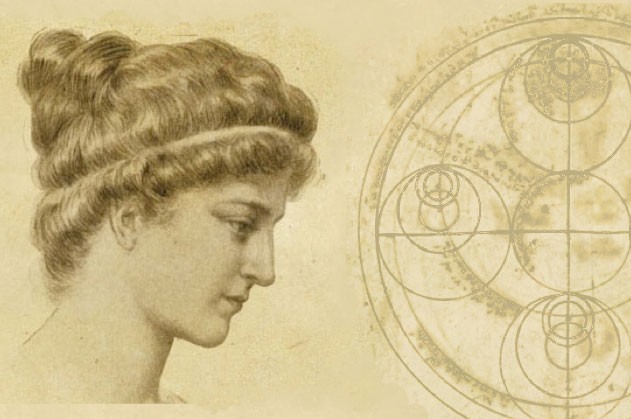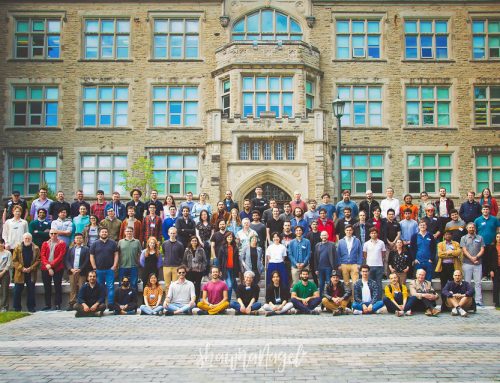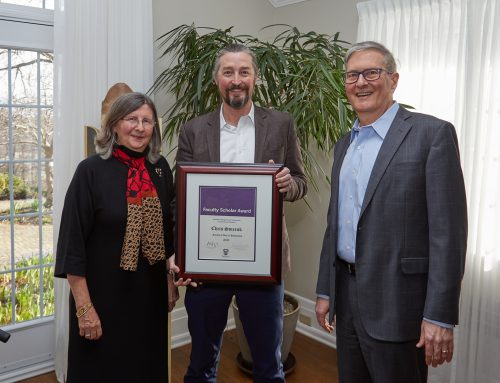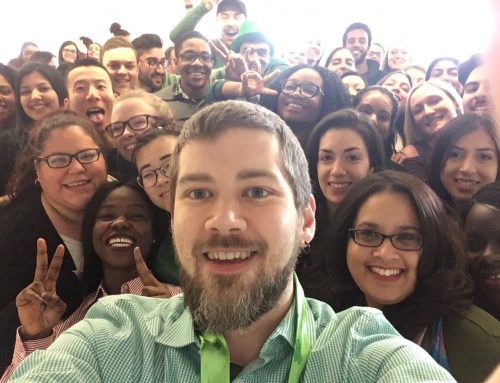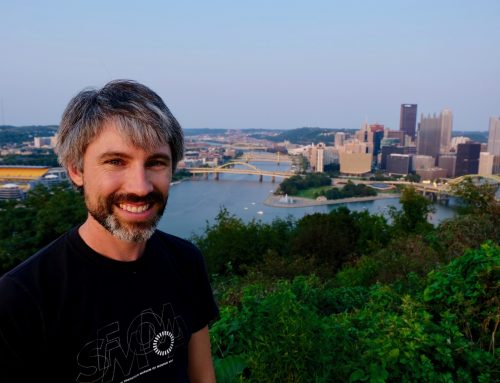This post is the first in our weekly series of interviews with the Rotman Institute’s postdoctoral fellows. These interviews are accessible introductions to the scholarship and to the service done by each postdoc. Rotman postdocs are a vital part of the life of the Institute and we hope that these interviews will give our readers a sense of the broad range of work done here.
Alida Liberman is a postdoctoral fellow at the Rotman Institute of Philosophy, and in the fall of 2016 she will begin working at the University of Indianapolis as an Assistant Professor of Philosophy. She completed her doctoral dissertation at the University of Southern California and works on topics including ethics, practical reasoning, meta-ethics, bioethics, philosophy of law, and feminist philosophy.
Amy Wuest: In your paper—”A Promise Acceptance Model of Organ Donation”—you assess and evaluate models of what normative change occurs when someone becomes an organ donor. After rejecting models developed by other ethicists (the Consent Model, the Gift Model, and the Promise Model), you develop your own account: the Promise Acceptance Model. Can you describe this model? What makes it different from the other three?
Alida Liberman: Many people think that when you sign up to be an organ donor, you are granting your consent to the state to use your organs, or perhaps making a gift of your organs, or making a promise that your organs can be used after your death. But the Consent Model doesn’t capture the right standing of donor autonomy. When you consent to something, you merely give permission; if I consent to your entering my home, you don’t wrong me if you decide not to enter. When you become an organ donor, though, you are doing something stronger—if a donor dies with usable organs and the state doesn’t use them, then it seems that the donor is being wronged in some way.
The Gift Model and Promise Model each have a different flaw: they don’t capture the way in donors can revoke their donor status. If you give someone a gift or make a promise, you can’t unilaterally take that back just because you want to. But if you decide to become an organ donor, you can take that back at any time, for any reason.
So I propose a new model, according to which the state makes a general promissory offer to use the (medically suitable) organs of anyone who dies. When you sign the donor registry, you accept this promise. So the state is obligated to keep their promise and use your organs, and you are able to revoke your donor status if you want by releasing them from the promise.
This model has implications for cases in which the deceased donor’s wishes conflict with the desires of the family—say, the deceased was a registered donor, but the family refuses to consent to the donation. This doesn’t matter; the state has made a promise to the individual that they are morally required to keep. If the donor had merely granted consent to the use of the organs, then the state could rightly decline in light of family objections.
AW: In your current research, you explore conscientious objectors’ moral responsibility. In so doing, you defend a subjective account of moral responsibility. Can you describe subjective responsibility and why it is important in evaluating the merits of a conscientious objection?
AL: I’m investigating a foundational question: what kinds of claims are appropriate bases for conscientiously objecting to providing a professional good or service? I argue that conscience can be protected only if we allow people to object to what they take to be wrong and what they take themselves to be responsible for; that’s what I mean by subjective wrongness and responsibility.
Here’s an analogy: suppose I believe that it’s morally wrong to drink Budweiser when at a craft beer bar. This is a false belief; drinking mass produced lager when at a craft beer bar isn’t in fact morally wrong (even if it is aesthetically impermissible!) But my conscience will be violated if I’m forced to drink Bud, because I think it’s wrong. The same is true of our responsibility beliefs; if I superstitiously believe that stepping on the cracks breaks my mother’s back, then it will go against my conscience to step on the cracks, even though this doesn’t actually affect my mother in any way.
It’s important to realize that there are constraints on these subjective beliefs about wrongness and responsibility, though. The conceptions of wrongness and responsibility that ground conscientious objection can’t go against the basic competencies required of minimally decent professionals. For example, a conscientious objection to providing a vaccine on the basis of the demonstrably false belief that vaccines make kids sick would not be appropriate, since minimally decent doctors have to trust basic scientific and medical evidence.
AW: In addition to your work on conscientious objections, you also discuss promises. As you point out, much of the academic literature addresses whether and when is it acceptable to break a promise. Some of your work turns this line of thought on its head by asking when it is acceptable to make a promise. What inspired you to approach this issue from such a novel perspective?
AL: Electoral politics! As an American living in Canada last fall, I was following two election cycles—the Canadian federal election, and the American presidential primary elections. Politicians make a lot of promises, and I was curious about when these promises were morally permissible to make. I’m especially interested in promises made under conditions of uncertainty. Is it morally permissible to make a promise you’re not certain you can keep? Political promises are subject to a lot of uncertainty, but so are promises made by everyday folks.
AW: One of the most interesting features of your work is your ability to seamlessly integrate discussions of contemporary ethical issues into academic analyses. Why do you think addressing such issues is important? What advice would you give to other philosophers who might wish to integrate more discussion of contemporary ethical issues into their work?
AL: One of the really important roles that philosophers can play is to shed some light on the real world around us—to use our best philosophical tools and methods to help clarify and analyze the thorny issues people are actually grappling with. In general, I think public philosophy is very valuable. This is usually understood as philosophy written for a general audience. This sort of philosophy is essential, and we should probably be doing a lot more of it. But I think it’s also valuable to do our best to make sure our academic work is in touch with the real world—to infuse public interests into philosophy, as well as sharing philosophy with the public.
My advice to others who want to integrate contemporary issues is to follow current events, and sign up to receive alerts about stories that connect in any way to your philosophical interests. Certain podcasts are also a great source for cases; I’m a fan of RadioLab, among others. Of course, using news stories as a source of ideas for philosophical analysis is easier in some sub-fields than others, such as bioethics. But you’d be surprised how much pop culture and current events can inspire you, if you’re looking for it.
AW: At Western you are involved in MAP, or Minorities and Philosophy. Can you describe the sort of work that MAP does and your involvement in it?
AL: MAP is a graduate student led organization with chapters in philosophy departments across North America and Britain. MAP aims to provide a space for addressing both theoretical issues—including philosophy from minority perspectives and about race/gender/sexual orientation/disability/class/etc.—and practical issues about how to include and increase the participation of members of under-represented groups in philosophy as a profession. Western’s chapter of MAP ran two reading groups this year, both of which I was involved with—one on the philosophy of race and gender in the fall, and another on indigenous politics of recognition in the winter, focused on Glen Sean Coulthard’s book Red Skin, White Masks. These are rich and interesting philosophical topics that aren’t always part of the standard curricula; by organizing reading groups on these topics, MAP is helping to fill the gap.
AW: You recently helped organize an inclusive pedagogy workshop run by the American Association of Philosophy Teachers (AAPT) and co-sponsored by Western’s chapter of MAP. What did the workshop address? How do you think inclusive pedagogy can improve the teaching of philosophy?
AL: Our workshop was attended by 30 students and faculty from Western and beyond, and was a big success! Our focus was not on creating courses with more diverse content—which is of course very important!—but on making your entire approach to teaching as inclusive as possible, or doing the best that you can to mitigate unfairness and injustice in your classroom. Your students will inevitably come into the classroom with varying degrees of preparation; through no fault of their own, some will be better equipped to understand the mysterious world of academic philosophy than others. And some of your students will automatically feel a lot more welcome in that world than others will; generally, the more that students deviate from the stereotypical image of a philosopher—white, male, middle class, heterosexual, English-speaking, able-bodied, etc.—the harder they will have to work to be included and to make their voices heard. We want to create classroom environments where this work is easier, rather than harder.
Inclusive pedagogical practices make for better teaching because at base, inclusive pedagogy simply is good pedagogy. For example, our workshop focused on strategies for making teaching more learner-centered. A teacher-centered teacher asks, “What am I going to teach about today?” while a learner-centered teacher asks, “What do my particular students need to learn today, and how can I best help them learn it?” Adopting a learner-centered approach helps everyone. Another main idea we focused on was the importance of transparency in the classroom, which involves being explicit and upfront about exactly what is expected of students, and about what the many unstated assumptions are that we’re all used to making as professional academics, but that might be very foreign to students. This is especially helpful for students who aren’t as familiar with academic norms—such as first-generation college students—but again, it is good for everyone.

